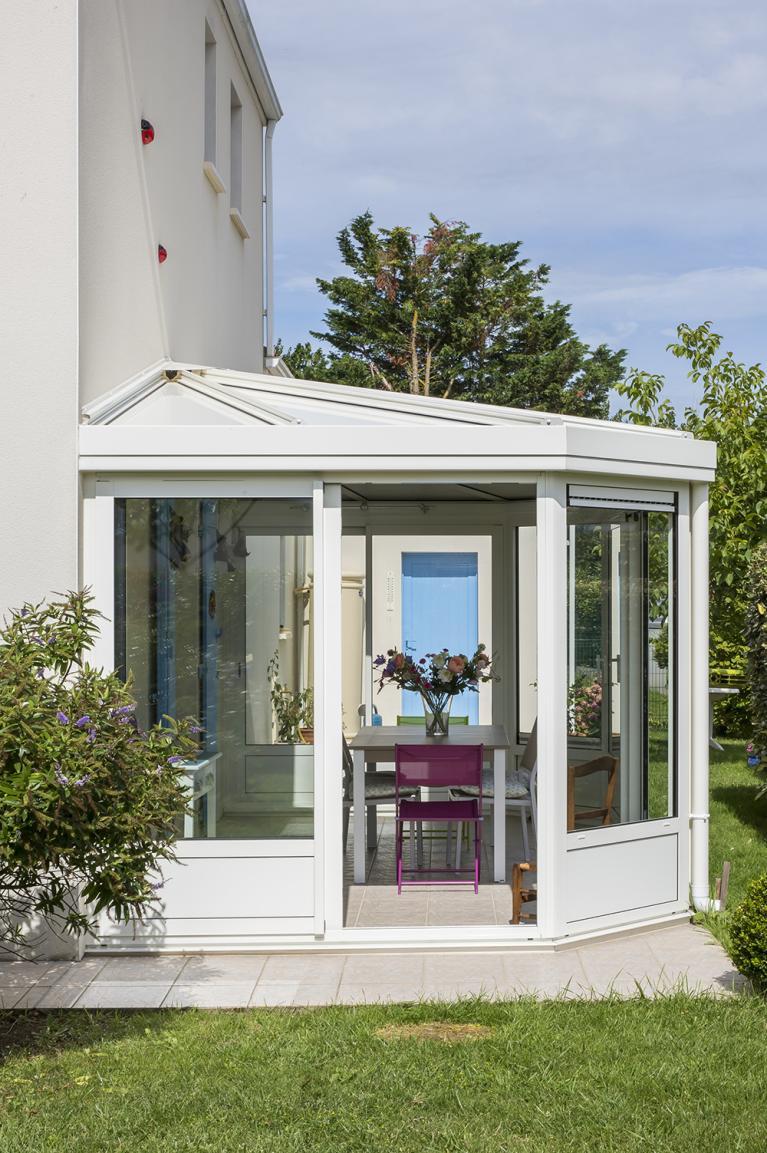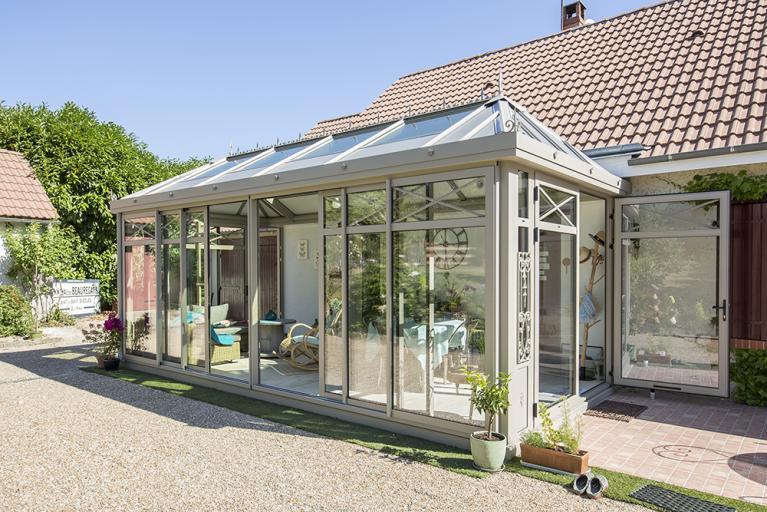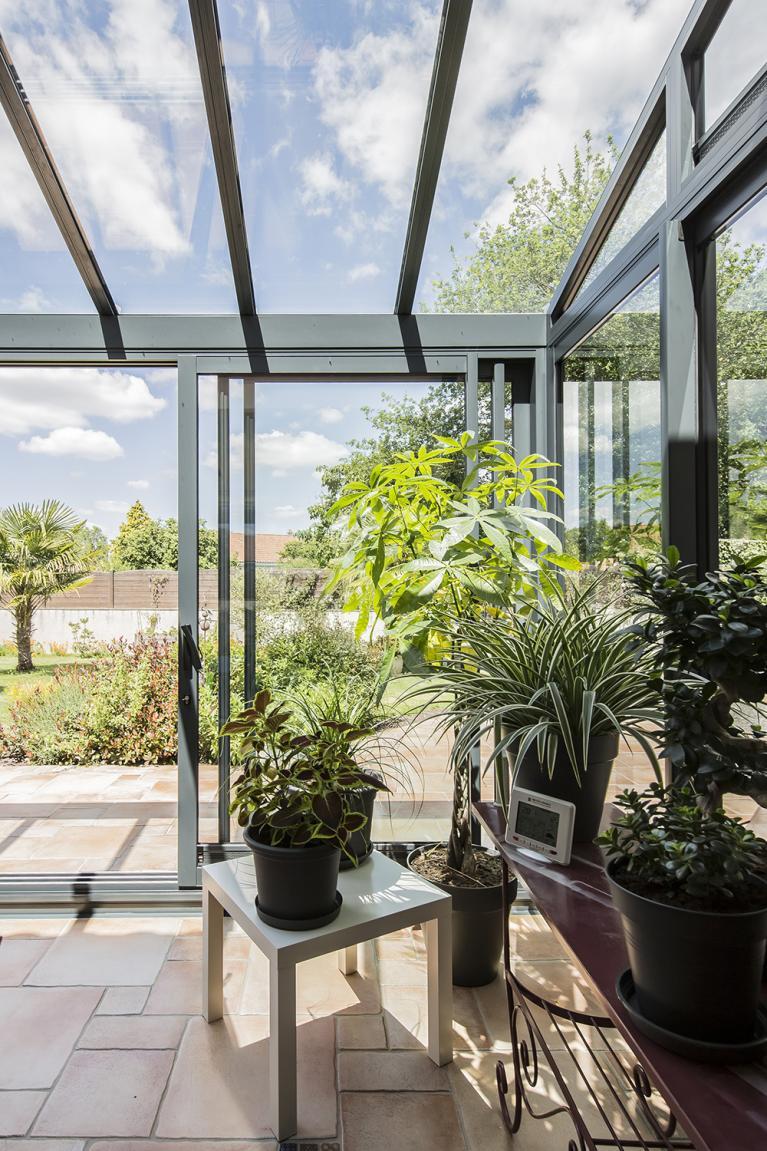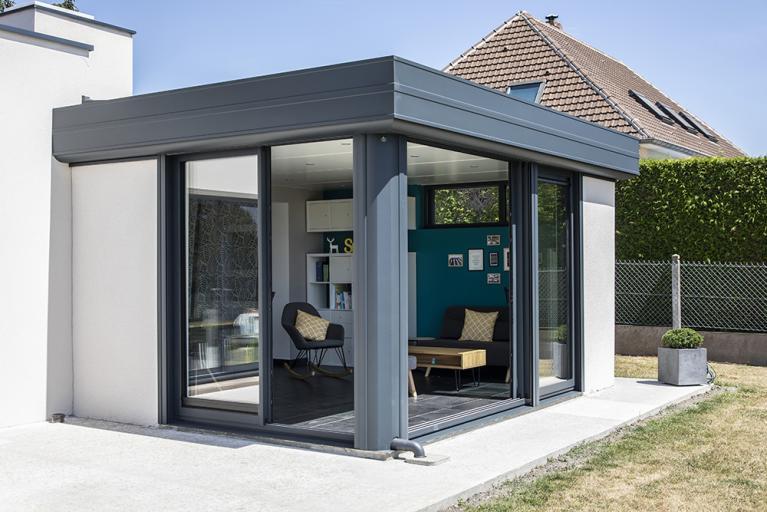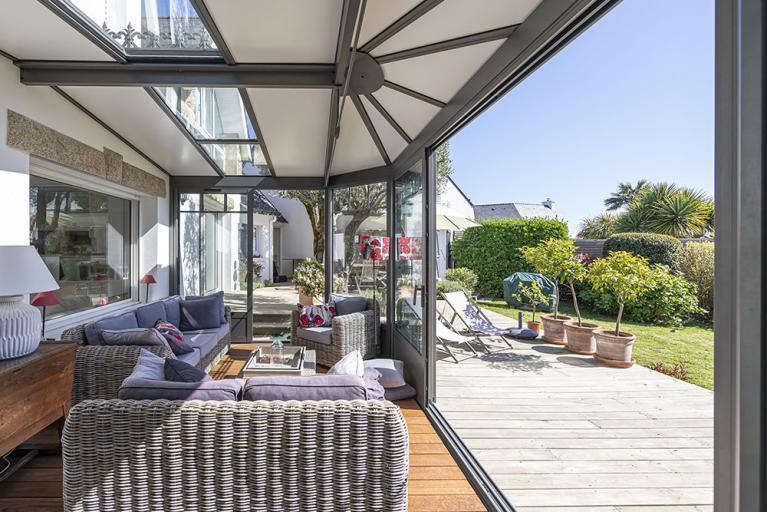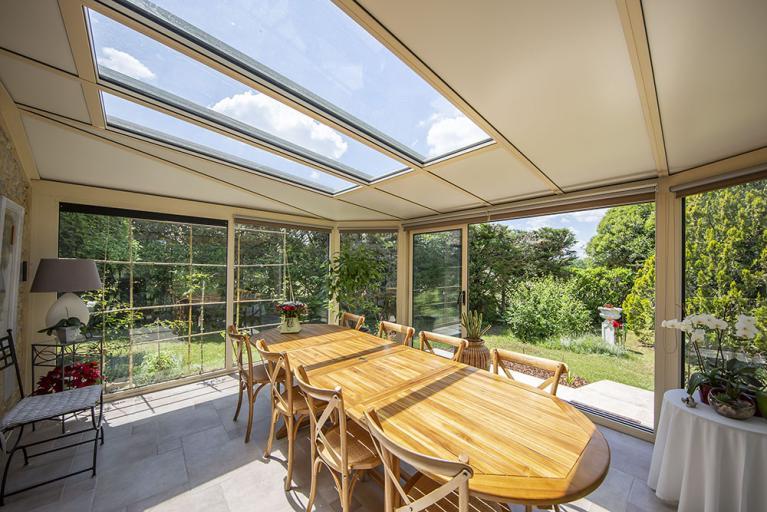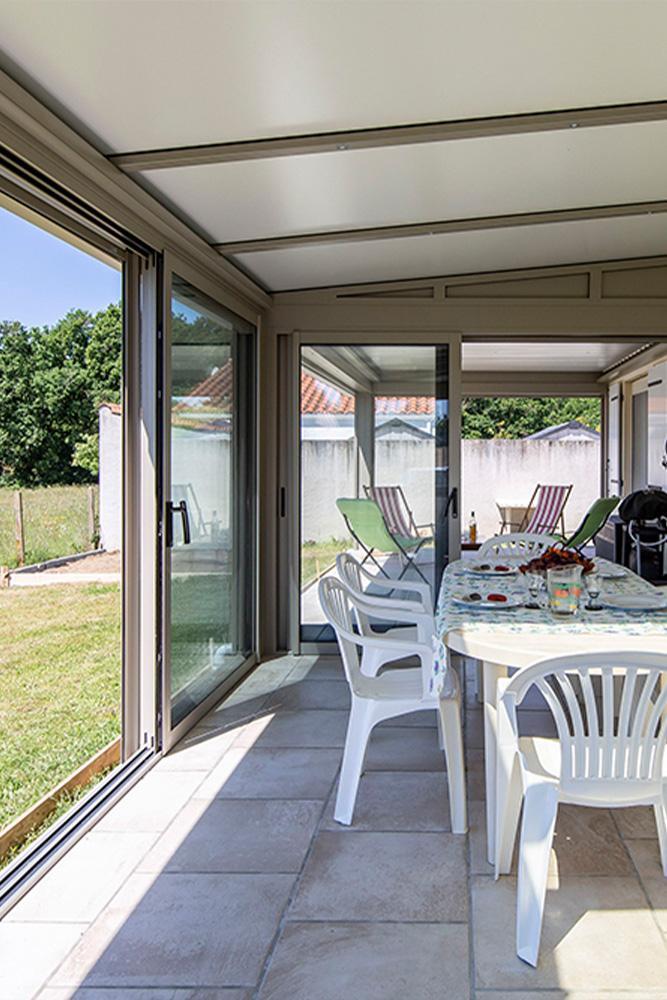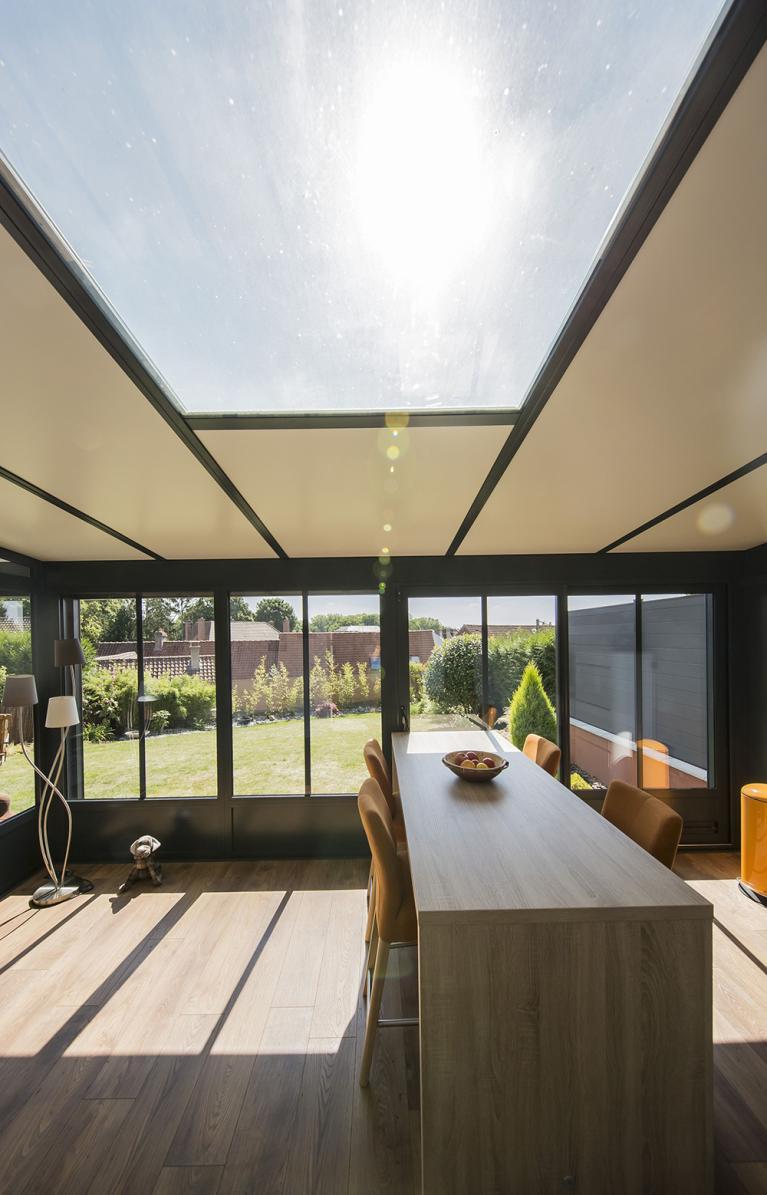How to avoid insects in my conservatory?
Often the sworn enemy of summer, and a nuisance when it comes to terrace parties, mosquitoes also invite themselves into our homes once the lights are switched on. More recently, the growing invasion of the tiger mosquito in France has forced us to avoid them and protect ourselves from their bites. The same applies to flies, wasps, spiders, lizards and other pests that disturb our peace and make our lives miserable! How can you prevent them from getting into your conservatory? What's the best solution for mosquitoes? How can you prevent them while preserving certain species necessary for biodiversity?
Grandma's tricks, more or less effective
Who hasn't tried good old recipes and concoctions to scare away mosquitoes, ants and other flies? From cloves to citronella, geranium flowers to lavender essential oil, these methods are as effective at repelling bad smells as they are convoluted!
Anti-fly sticky tapes deployed in kitchens work perfectly, but are unsightly to say the least. As for wasp and bee traps, although they are effective, they are just as destructive of these species, which are essential for pollination and protecting crops from pests.

Repellents that are not very environmentally friendly
A quicker and more radical method, fly sprays, mosquito bombs and insecticides are formidable repellents. Others prefer candles for their trendy fragrance.
But on the whole, these products are widely criticised and even advised against because they are harmful to the environment and to health due to the presence of harmful substances in their composition. Not to mention the fact that their protection is very limited in time.
Mosquito nets: the unstoppable, long-lasting solution for shelter
Harmless to the environment, to humans and insects alike, mosquito netting is the ideal protective barrier to prevent any intrusion into your conservatory. It generally consists of an aluminium frame in which a very fine, tightly-woven fabric is fixed to prevent insects from getting through.
Which insect screen should be installed on conservatory windows? Insect screens come in a variety of forms: vertical or side-rolling like a blind, pleated, curtained or pivoting to fit conservatory windows, doors and sliding windows. Choose mosquito nets that stay in place on your windows even in winter, for long-lasting, total protection all year round. If you're not using the screens, you can fold them up like an awning without them getting in the way. In summer, you'll love being able to open your conservatory to ventilate and refresh the indoor air without fear of insect nuisance, even at night with the lights on.
While installing mosquito netting may cost extra upfront, it's a long-term investment that will protect your conservatory from stains caused by insects.
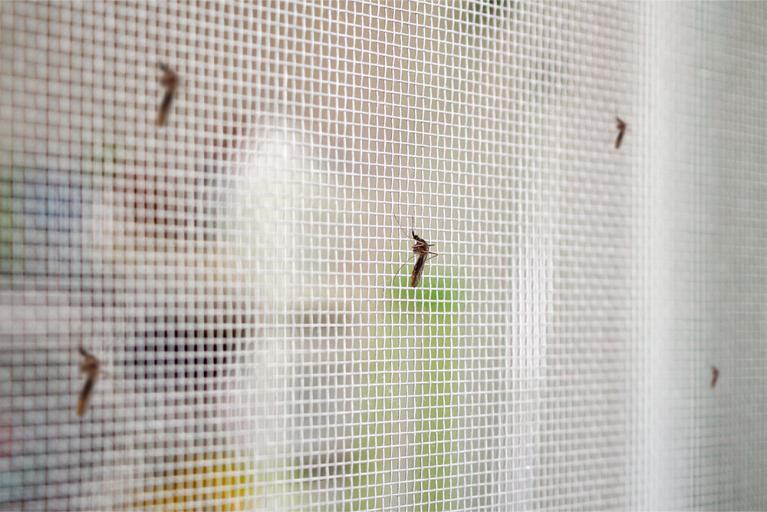
The advantages of AKENA mosquito nets
Featuring an all-aluminium fixed frame and a UV-resistant, rot-proof, fine-mesh fabric, the side-rolling flyscreen offered by AKENA for new conservatory projects can be adapted to fit large sliding bay windows.
As well as being easy to use, AKENA :
- does not darken the conservatory
- is compatible with all conservatory models; it can be installed in addition to roller shutters for double protection
- is virtually invisible thanks to the frame, which is the same colour as the conservatory
- can be fitted after the conservatory has been installed, so it can be added later if you change your mind or your needs evolve.
As for the price of mosquito nets, if we take the example of a conservatory measuring 6 x 3 metres, it will cost you around €1,300.
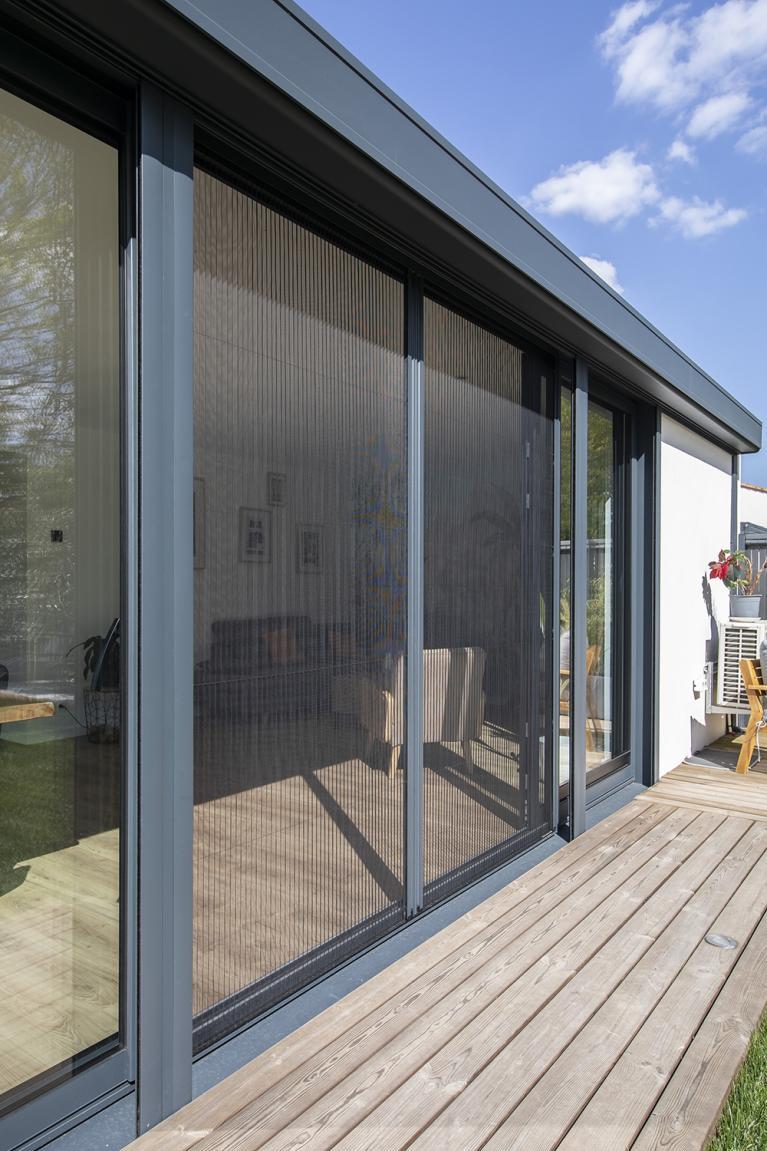
Find all the articles in the magazine
You have a project?
Would you like a personalised 3D study and a free quotation? Contact us by clicking below.
AKENA is...
Over 40 years of experience
Founded in 1981 by one man, we now have more than 500 employees dedicated to making your project a success.
Made in France
A historic site and two factories covering more than 25,000 m² in Dompierre-sur-Yon in the Vendée region (85)
Innovative and tailor-made products
At AKENA, we are brimming with new ideas to improve and enhance our products.
The European leader in conservatories, pergolas...
But not only! AKENA also offers a complete range of carports and pool houses.
